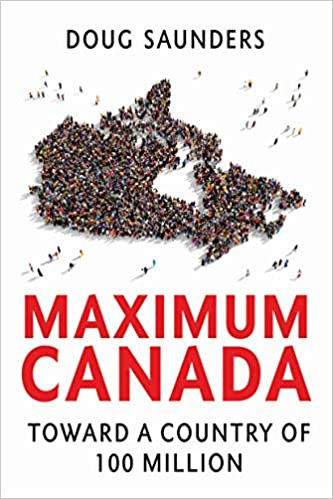About Systematic Organization
I’m Paul Musgrave, a political scientist and writer. This is Systematic Organization, my newsletter about my thoughts regarding politics and the study of politics. The newsletter takes its title from a line in The Education of Henry Adams:
Politics, as a practice, whatever its professions, had always been the systematic organization of hatreds, and Massachusetts politics had been as harsh as the climate. The chief charm of New England was harshness of contrasts and extremes of sensibility—a cold that froze the blood, and a heat that boiled it—so that the pleasure of hating—one's self if no better victim offered—was not its rarest amusement; but the charm was a true and natural child of the soil, not a cultivated weed of the ancients.
This week, we’re talking about why the post-pandemic period won’t be a sudden relief for your home and workplace.
Crunch Time
So what do you think life’s going to be like after the pandemic eases?
I caught myself using the phrase “for the duration” the other day. It’s an old phrase, a wartime phrase, from the 1940s—what Americans said to explain away the Second World War as an interruption to normal life. It’s a classier way of the “before time” phrasing that has come to dominate our conversations about the bright line the virus has drawn between the Now and the Then.
In its own way, though, it’s a hopeful phrase. “For the duration” means that there is a duration—that the after time will come, that there is not just a New Normal but a Later Ordinary to come. Biden’s new slogan, “Build Back Better”, plays on this: we’ll get back to normalcy, Warren Harding-style, but we’ll have a new deal too.
What a hopeful vision, and it may even come to pass in the medium term and on the macro scale.
On the scale of your life and your social units, though, I’m much more pessimistic.

Stock photo of happiness, to give this newsletter some balance.
If you’re like me—lucky enough to be employed, but working entirely from home and probably working harder that the least rewarding parts of your job than you ever have before (and no, I don’t mean teaching, I mean clicking buttons and scrolling through screens)—then the thought of the After Time is a wonderful pastime. I can’t go into the grocery store now without putting on a mask, but In The After Time I’m going to spend weeks in Thailand just happily smelling durian. Or something.
Here’s the thing, though. The After Time isn’t going to arrive all at once, and it isn’t going to give us time to travel or anything like that. We’re going to ease back into “normalcy” over months or years, as a vaccine is rolled out and then given to us in tranches measured by how much the government thinks we’ll need it. When we emerge, blinking, into the sunlight of the social world again, we’ll emerge into a world where many of our favorite stores and bars and restaurants and theaters and cinemas and you-name-its have vanished.
And we’ll do so exhausted and bedraggled from months of quasi-isolation. But there won’t be the time to take all of those vacations and trips and everything you’re fantasizing about. Every organization I know has put aside a set of projects and responsibilities that can’t be done For the Duration, but this is just banking work against the time that the duration has come to an end. We will emerge from the pandemic not into the eternal sunshine of the spring break they stole from us, but into the musty workplaces we left with to-do lists that have somehow grown even longer.
The longer this goes on, the worse re-entry will be. One semester of online college is annoying. Two or more is a tragedy—and one that will indeed put a lot of colleges out of business, or close to it (and many more staffers and faculty out of work). Recovering our balance from that kind of a blow is going to take even more work than we’re putting in right now, and we’ll have to do it under circumstances that will be far from normal.
Why think about this? Because setting our expectations is actually better in the long term. Let’s not put The Cure or The After Time or however we’re thinking about what is to come on a pedastal. Let’s realize that the virus hasn’t just stolen 2020 but much of 2021 as well. If “for the duration” is a wartime term, let’s get ready to settle in for a long war, rather than be disappointed when we haven’t won by Christmas.
What I’m Reading
This week, I’ve been reading Doug Saunders’s Maximum Canada: Toward a Country of 100 Million.

Canada has been holding out on us. It presents itself as a collection of nice cliches—the G-7’er next door with a great personality but not much oomph. This is protective coloration. In reality, I’ve never inquired into any aspect of Canadian history without discovering some wild and amazing saga—except for the elements of Canadian history that should, by right, be exciting, like the 1837 rebellions, a period of insurrectionist violence so tame that any single U.S. state can point to a more brutal rising. But when it comes to just about anything else, from fringe parties becoming dominant in Western provinces to French President Charles de Gaulle kinda-sorta supporting a secessionist movement to occasional efforts to annex a Caribbean country or two, Canada’s plain, self-deprecating presentation hides a country with an exciting past.
Americans, of course, largely don’t care. I recognize that I’m an exception in finding Canada interesting on its own terms. And my interest in Canadiana stems somewhat of a perverse escape from the hegemony of U.S. political culture as well as from my preoccupation with international formations masquerading as sovereign states. In general, though, Americans’ attitudes toward Canadians reflect what we’d expect from the world’s dominant superpower thinking about the much weaker allied country next door: nice place, not much going on there, and a useful place to stash some military equipment. There’s a reason that “Worthwhile Canadian Initiative” is a punchline describing something worthy yet dull. (That reason, it should be clear, has more to do with the mix of U.S. chauvinism and Canadian earnestness than with the initiatives themselves.)
In that vein, describing Doug Saunders’ exploration of Canadian immigration as a—well, you know—would seem like a joke. The joke, however, is on Americans. Saunders’s book is a fascinating exploration of a puzzle I’ve barely ever considered. Why is Canada, the world’s second-largest country by land area, so poorly populated? And, no, Saunders explains: it’s not the weather (people moved to New England, Michigan, and the Dakotas, after all.)
The answer, it turns out, lies in how the British Empire and then Canadians themselves shaped Canada’s immigration policy to keep people out for almost the entirety of the country’s history. And even though Canada is now famously pro-immigrant (for a rich-world country, at least), Saunders argues that Canada needs to do much more to overcome its deficit in people—not least to protect itself against the possibility that its neighbor to the south might one day take an unfriendly interest in the Great White North.
Saunders shows how Canadian history proceeded for a long time as the mirror image of the secessionist Thirteen Colonies and the country they made. The British empire long sought to craft Canada into a safe reservoir for fish, timber, and wheat. That required loyal subjects, but not many of them, and certainly not anyone ambitious. For decades, then, dutiful but undercapitalized Britons settled in the Canadian frontier—and then, finding it to be dreadful, mostly moved southward to the United States, where they joined millions of Canadian immigrants (including a huge chunk of French Canadians) in making vastly brighter careers in the booming American economy. Coupled with an absurdly racist immigration policy that kept out anyone from, say, Scandinavia or Greece (northern Italians: okay; southern Italians: back on the boat), Canada managed to miss out on the great migrations of Europeans in the nineteenth century.
Saunders terms this the era of “minimum Canada”, in which Ottawa and provincial governments carried out the British policy of restricting immigration to those who would be loyal to the Crown—a legacy of the country’s experiences during the War of 1812. Ironically, after Confederation (when Canada took on its present form of government), the British seem to have hardly have thought about Canada’s policy, but Anglo-Canadians kept to the minimum-Canada policy out of racism and snobbery while French-Canadians supported it out of cultural self-preservation. Traces of this impulse would be felt as late as the 1950s and 1960s, when throwback Prime Minister John Diefenbaker annoyed U.K. Prime Minister Harold Macmillan with constant schemes to bind the two countries more closely together—a policy that by then Britain was avoiding in favor of European integration.
The great irony is that minimum Canada was a vision of a balancing strategy against the United States—that by erecting barriers to immigration the United States and its influence would also be kept out. In the long run, Saunders argues, this failed because it left Canada with too small a population and too scanty a market to pose a challenge to the U.S. Instead, Canadian culture and firms became tied to the hegemon.
The alternative would be a policy of maximum Canada—of encouraging multicultural immigration to Canada to fill the country’s cities with professionals and workers who could give the sparsely-populated country the cultural and economic heft it would need to have its opinions count. Saunders’s goal is 100 million Canadians by 2100, which seems if anything rather slow given that the country could easily absorb twice that number without approaching the population density of the Netherlands even in the thin strip of land where Canadians actually live.
I’ve learned more from this book(‘s first two-thirds; the last third is pretty much for Canadians only, unless you care about urban planning to meet this in detail) than from almost anything I’ve read in the past few months. It helps that Saunders is a deft, clear writer talking about a subject that I knew next to nothing about. It was a fascinating and bracing book, and it was a relief to read about normal policies adding up to useful, progressive change in a functioning democracy rather than to read about—well, you know.
Support My Students
If you can, please give to support students in my Politics of the End of the World class as they prepare podcasts exploring the politics of the apocalypse.



I really liked this bit about Canada. While I don't share your inherent interest in Canada, it is a more important country than even it pretends. This book and the ideas therein flew right under my radar.